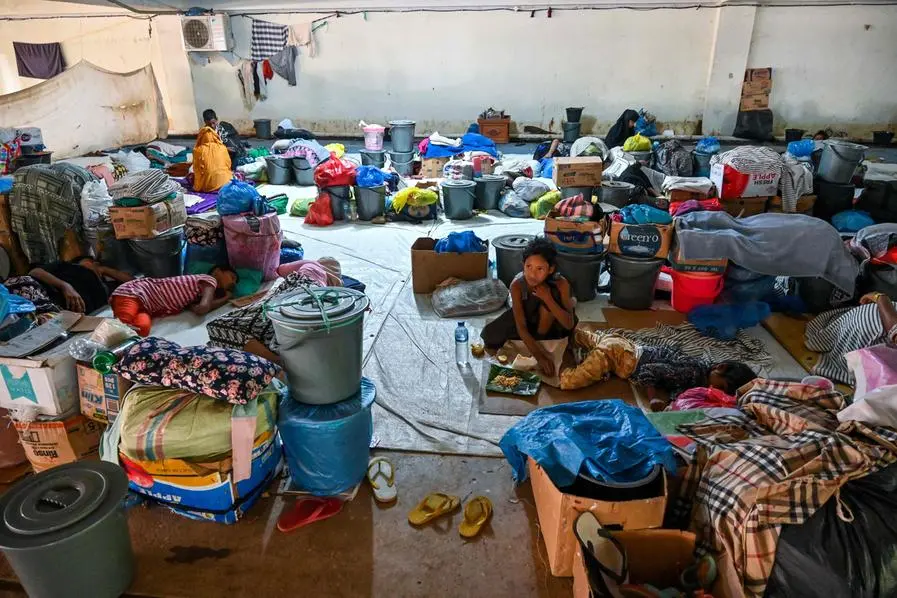PHOTO
The UN on Wednesday called for increased support for the many Rohingya refugees languishing in camps in Bangladesh, where funding shortfalls have left many without enough food or other aid.
In its annual response plan to the crisis, the United Nations appealed for $852.4 million to provide desperately-needed assistance this year to the mostly Muslim Rohingya refugees in Bangladesh and their host communities.
Bangladesh is home to around a million members of the mostly stateless minority, many of whom fled a 2017 military crackdown in Myanmar, where the conflict on the ground has continued to escalate.
Some 95 percent of Rohingya households in Bangladesh are considered vulnerable and remain dependent on humanitarian assistance, the United Nations refugee agency (UNHCR) pointed out in a statement.
"International solidarity with Bangladesh and refugee protection is needed more than ever as the conflict in Myanmar escalates," it said.
Last year, the UN and its partners asked countries to provide $876 million to help those caught up in the Rohingya refugee crisis.
But in the end, only $440 million -- barely half the requested amount -- was provided.
With the humanitarian crisis largely out of the international spotlight, UNHCR warned that significant funding shortfalls in recent years had had "serious implications".
Many of the refugees were struggling to meet their basic needs, it warned, insisting that "sustained assistance is critically and urgently needed".
More than 75 percent of the refugee population receiving aid are women and children, it said, cautioning that they are facing "heightened risks of abuse, exploitation and gender-based violence".
"More than half of the refugees in the camps are under 18, languishing amidst limited opportunities for education, skills-building and livelihoods," it said.
The UN-led joint response plan to the crisis brings together 117 partners, nearly half of them Bangladeshi organisations.
It will aim to help around one million Rohingya refugees in the Cox's Bazar camps and on the island of Bhasan Char, along with nearly 350,000 people from host communities.
The money will be used to fund food, shelter, health care, drinking water access, protection services, education and other assistance, the UN said.
Conditions in the overcrowded camps in Bangladesh, where lawlessness is rampant, have seen a growing number of Rohingya attempt dangerous and often deadly sea voyages headed for Malaysia and Indonesia.
There is, meanwhile, little progress towards repatriating the refugees to Myanmar, which is facing a UN genocide probe over the 2017 exodus.
And since then, the country's military junta seized power in a 2021 coup that ousted Aung San Suu Kyi's democratically-elected government.
The military rule in Myanmar, which faces widespread armed resistance, has inflicted unbearable cruelty, UN rights chief Volker Turk warned earlier this month.
"The human rights situation in Myanmar has morphed into a never-ending nightmare, away from the spotlight of global politics," he told the UN Human Rights Council.





















